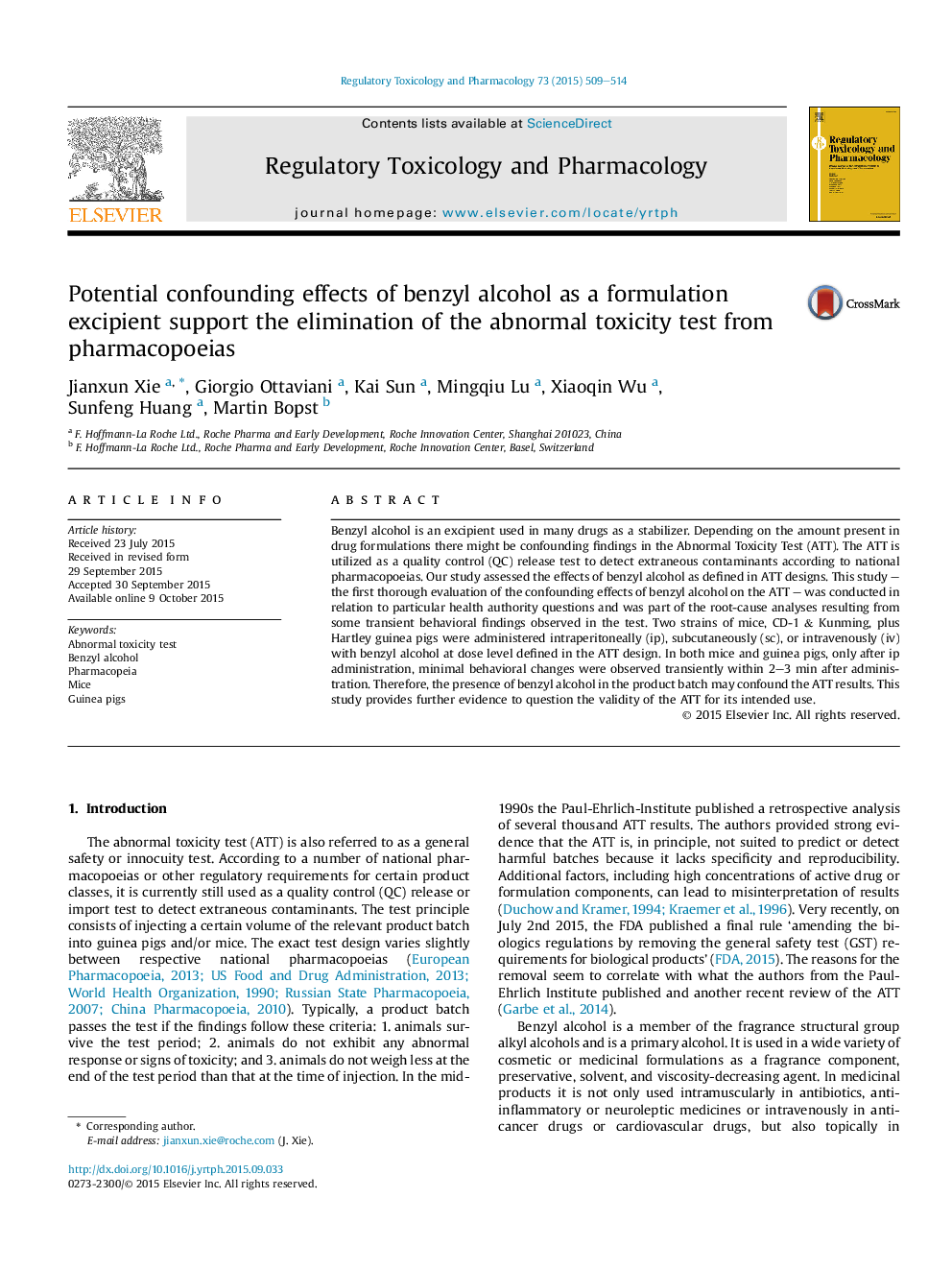| Article ID | Journal | Published Year | Pages | File Type |
|---|---|---|---|---|
| 5856149 | Regulatory Toxicology and Pharmacology | 2015 | 6 Pages |
â¢ATT is a quality control test to detect contaminations per pharmacopoeias.â¢Benzyl alcohol, an excipient, induced behavioral changes in animals by ATT.â¢1st thorough evaluation of the confounding effects of benzyl alcohol on the ATT.â¢The validity of the ATT for its intended use is questioned.â¢Complete elimination of ATT from all pharmacopoeias suggested.
Benzyl alcohol is an excipient used in many drugs as a stabilizer. Depending on the amount present in drug formulations there might be confounding findings in the Abnormal Toxicity Test (ATT). The ATT is utilized as a quality control (QC) release test to detect extraneous contaminants according to national pharmacopoeias. Our study assessed the effects of benzyl alcohol as defined in ATT designs. This study - the first thorough evaluation of the confounding effects of benzyl alcohol on the ATT - was conducted in relation to particular health authority questions and was part of the root-cause analyses resulting from some transient behavioral findings observed in the test. Two strains of mice, CD-1 & Kunming, plus Hartley guinea pigs were administered intraperitoneally (ip), subcutaneously (sc), or intravenously (iv) with benzyl alcohol at dose level defined in the ATT design. In both mice and guinea pigs, only after ip administration, minimal behavioral changes were observed transiently within 2-3Â min after administration. Therefore, the presence of benzyl alcohol in the product batch may confound the ATT results. This study provides further evidence to question the validity of the ATT for its intended use.
